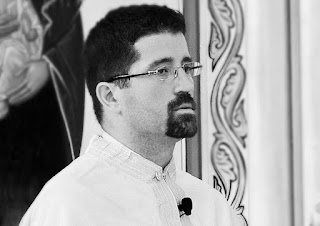It is against U.S. securities law to knowingly make false statements or publish false information about a company you are shorting (selling stock now and buying the shares later, hence betting the stock price will go down). In other words, you can’t try to drive the company’s stock price down you are shorting so you can profit from the trade. Besides being illegal, the practice is unethical. Just go to Kant for that! The guy was fanatical against lying.
You wouldn’t expect to read, therefore, that the SEC is investigating a Greek Orthodox priest who sidelines as a hedge-fund manager for trashing commercial reputations in order to make money off shorting stock. BloombergBusiness reported on March 18, 2016 that the SEC was “examining whether the Reverend Emmanuel Lemelson of Massachusetts made false statements about companies he was shorting.”.”[1] He reportedly referred to his trading skills as a “gift from God.”[2] Such a claim is on a slippery slope, theologically speaking.
The priest who may have lapsed off the plank of Christianity's pro-wealth paradigm onto outright greed hidden under rationalizations as to means and ends. Is Christianity itself at risk for having gone so far into this worldly realm? The again, the Medieval Roman Church was very worldly as a political power.
When the story broke, I had just days earlier finished
revising my second book on Christian attitudes toward profit-seeking and wealth
in relation to greed. Lemelson’s “gift from God” language reminds me of the
pro-wealth writings during the Italian Renaissance two centuries before the
Calvinist work-ethic of industriousness. The Italian theologians of the
fifteenth century tended to lighten up on profit-seeking and wealth. Cosimo de Medici
got a pass from Pope Eugene IV in spite of a fortune based on usury (lending at
interest). One priest, Fancini, went so far as to claim that humans are gods on
Earth, given the dominion we have over its resources. Far from the camel who
could not get through the eye of the proverbial needle, a Christian during the
Renaissance (and after) knew he had to be rich in order to exercise the
Christian virtue of munificence. Whereas liberality pertains to typical gifts,
munificence involves donating money to build a cathedral, for instance. Being able
to make a lot of money was a “gift of God” that would enable the successful
Christian to give philanthropically on a scale worthy of God’s majesty.
Of course, the pro-wealth paradigm in Christianity is
vulnerable to lapsing into love of gain (i.e., greed). Luther’s extremely
anti-wealth stance can be interpreted as an effort to put on the brakes before
the by-then dominant pro-wealth attitude in Christianity hit the skids and
flipped over into greed. Luther did not succeed. Nor did Calvin or the
Puritans, though they were more accommodating to the dominant perspective. The
result was a clear line to the Prosperity Gospel—the notion that God rewards
true believers with not just salvation, but material wealth as well. This idea
came from the Old Testament, wherein God promises Israel that material wealth
would come if His People hold to the covenant.
In my book, God’s
Gold, I search for a theological undercurrent below the graduate shift from
anti-wealth to pro-wealth dominance. I discount the impact of the
commercializing context. With regard to the hedge-fund priest, I would be
hesitant simply to say he was a manifestation of a pro-business American
culture. This may be so, more significant, I submit, are the rationalizations
presumably going on in the guy’s head. Bearing false-witness (i.e., lying) to
harm others is difficult to view as a gift from God. Even as a means to a salubrious
end, the juxtaposition of a gift from God and lying without concern for others’
welfare is odd at best.
In the book, I come to a discussion of how the human brain
functions in the domain of religion. If we are vulnerable to certain “short-circuiting”
cognitively and yet we have a religious instinct, are we not as a species in a
double-bind? Put another way, if Lemelson can neither cognitively nor
perceptually recognize his own rationalization, is his urge to be religious
compromised? I don’t think so; rather, other aspects of the brain, or mind, may
obstruct or circumvent it as it manifests itself. I do think these
short-comings can be made transparent, and thereby reduced at least somewhat in
severity, or swollenness, but denial is indeed a formidable and intractable
obstacle. I suppose the dominance in Christianity since the Renaissance of the
pro-wealth paradigm (i.e., profit-seeking and wealth decoupled from the stain
of greed) renders the “mind-games” that much more harmful in terms of
rationalizing some rather un-Christian behavior toward others. For one thing, in order to make money in order to serve God
better can enable some pretty nasty means-ends justifications. In this way, Christianity itself is now more
vulnerable than the religion was when being wealthy and Christian were presumed
to be mutually exclusive (i.e., greed was assumed to be tightly stapled to virtually
any wealth). Ironically, the theology may be partially to blame, in so far as
anthropomorphism unwittingly lifts the religious status of money and property.[3]
1. Matt
Robinson, “Hedge
Fund Priest’s Trades Probed by Wall Street Cop,” BloombergBusiness, March 18, 2016.
2.
Ibid.
3.
The secret to that sauce is in chapter 12 of the book, God’s
Gold. I got so into the writing of that chapter in revising it that in
retrospect the chapters on the historical shift seemed a bit like a very long
preface.

